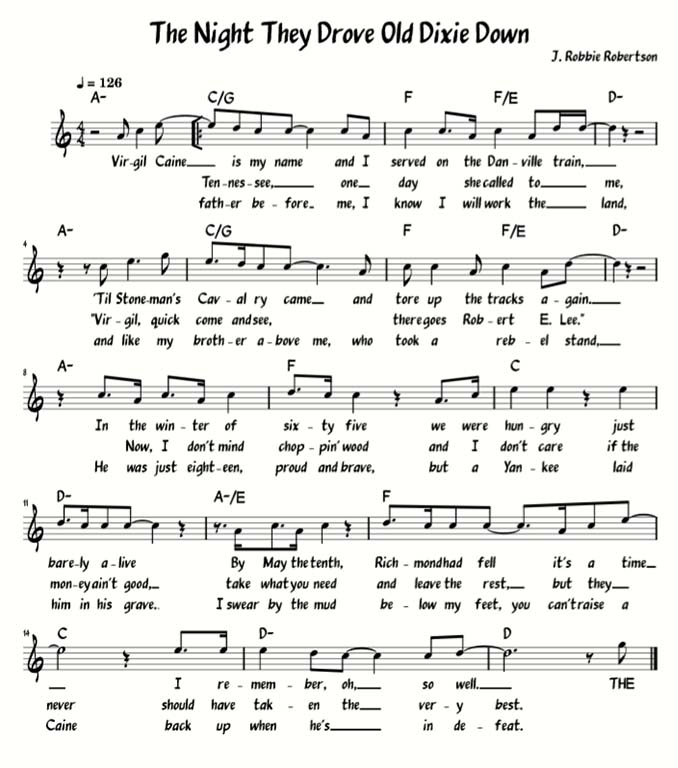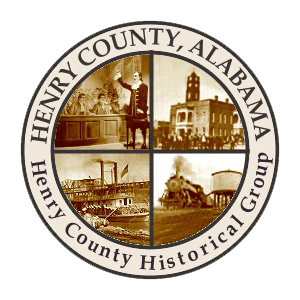
by Steve Parrish
Most of us at one time or another has heard the song, “The Night They Drove Old Dixie Down.” It is a folk song written in 1969, by Robbie Robertson of the group, The Band. We have heard the song many times and from artists ranging from Bob Dylan to Buck Owens, Johnny Cash and John Denver, but have we ever stopped and listened to the meaning behind the words?
The songs central theme conveys the destruction of the Southern will of people of that time. It is found in three areas of the song. The name of the song itself and the other lines in the song: “You take what you need and you leave the rest, but they should never have taken the very best” and “I swear by the mud below my feet, you can’t raise a Caine back up when he’s in defeat”. These three ideas have often sparked discussions as to their meaning.
It is an apparent commentary on the utter destruction of Southern homes, cities, and infrastructure in the South. The ballad depicts a time when Sherman had finished his “march to the sea” and describes the destruction that an army of that size would leave in its wake on the countryside. History likes to paint an “against all odds” picture of Sherman, “laying it all on the line and going deep into the south alone with no support.” What it doesn’t tell you is that he had nearly 100,000 soldiers and did not need any help. An army this size would cut a 20-mile wide swath through the South like a swarm of locust on a wheat field.
The other theme is that of hopelessness for the Southern cause. His eighteen-year old brother is killed in battle and he looks at the idea of ever having things like they once were. He realizes that it is impossible as he and others have been totally defeated and will never be, “brought back up”.
Interestingly enough are the other things that we could apply this song to. What about the Native American Indian? What about those who live in New Orleans? Couldn’t this be an equally valid expression of the grief they suffered? Time has a way of healing wounds both superficial and catastrophic.
Robbie Robertson was half Mohawk Indian and half Jewish-Canadian. When he first heard a Southerner say, “The South will rise again”, he thought it humorous. When he heard it a second time later, he was led to explore the meaning of their words which was the driving force for him to write the song. The Night They Drove Old Dixie Down is in the Rock and Roll Hall of Fame as one of the top 500 songs that shaped rock and roll. Next time you hear it, listen to it. It is a real piece of Americana.
Virgil Caine is my name and I served on the Danville train,
Till Stoneman’s cavalry came and they tore up the tracks again
In the winter of sixty-five, we were hungry, just barely alive
By May the tenth, Richmond had fell – it’s a time I remember oh so well
The night they drove old Dixie down, and all the bells were ringing
The night they drove old Dixie down, and the people were singing
They went “La, la, la-la, la, La, la, la-la, la-la, la-la, la”
Back with my wife in Tennessee, when one day she called to me
“Virgil, quick, come see, there goes the Robert E. Lee.”
Now I don’t mind choppin’ wood, and I don’t care if the money’s no good.
Take what you need and leave the rest,
but, they should never have taken the very best.”
(Chorus)
Like my father before me, I will work the land
Like my brother before me, I took a rebel stand
He was just eighteen, proud and brave, but a Yankee laid him in his grave
I swear by the mud below my feet
You can’t raise a Caine back up when he’s in defeat
(Chorus)
[Other songs in the top 500 include: Wabash Cannonball (Acuff); California Dreamin’ (Mamas and Papas); House of the Rising Sun (The Animals); Johnny B. Goode (Berry); I Walked the Line (Cash); Chantilly Lace (Big Bopper); Free Bird (Skynyrd); I Fall to Pieces (Cline); Stairway to Heaven (Zeppelin) and Sunshine of your Love (Cream).]



